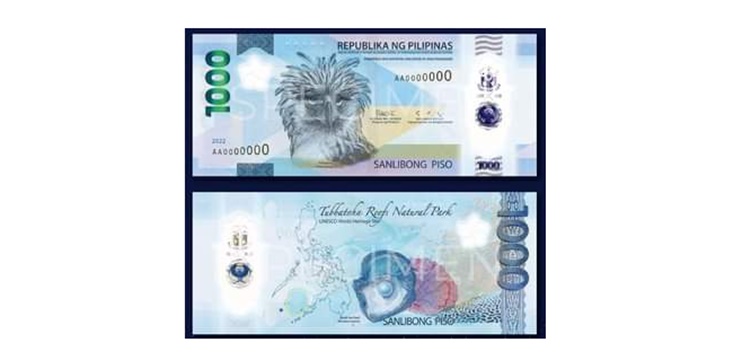BSP Guidelines on P1000 Polymer Banknote Handling
BSP – The Bangko Sentral ng Pilipinas or Central Bank of the Philippines has some warnings on the handling of the new P1000 polymer banknote.
Among the things that are passed on several times in a day are banknotes and coins. Most of the circulation takes place in public markets, jeepneys and public transportation vehicles, and grocery stores. Undeniably, there are those who keep their money neat in their wallets while there are also those who just put it inside their pockets upon receiving them.
While the coins are not easily damaged, the banknotes can easily get crumpled or torn. It is really against the law that banknotes would be cut or stapled as they damage the paper bills.
Recently, Bangko Sentral ng Pilipinas (BSP) or the Central Bank of the Philippines printed new P1000 paper bills. The new banknotes are made of polymer.

The new P1000 polymer banknotes contained the image of an Eagle instead of the three (3) World War II heroes – General Vicente Lim, Josefa Llanes Escoda, and Jose Abad Santos.
BSP got some reminders and warnings on the handling of the new P1000 polymer banknotes. Based on a post of Bombo Radyo Bacolod, the Central Bank warning that the following activities on the polymer bills are prohibited:
- writing on the banknote
- folding the banknote
- cutting the banknote
- stapling the banknote
- using of rubber band in the banknote
- putting the banknote on fire
- ironing the banknote
- exposure of the banknotes to high temperatures
- keeping the banknotes near chemicals
Based on the post, a violation of the aforementioned prohibitions on the new P1000 polymer banknotes bears a penalty of P20,000.00 and at least five (5) years of imprisonment. The said prohibitions gained different reactions from the public – some are in favor of it while others believe it would be hard for people to handle these banknotes well.
You may also visit – P1000 Bill – Malacañang Speaks on the Old, New Design for Banknote
